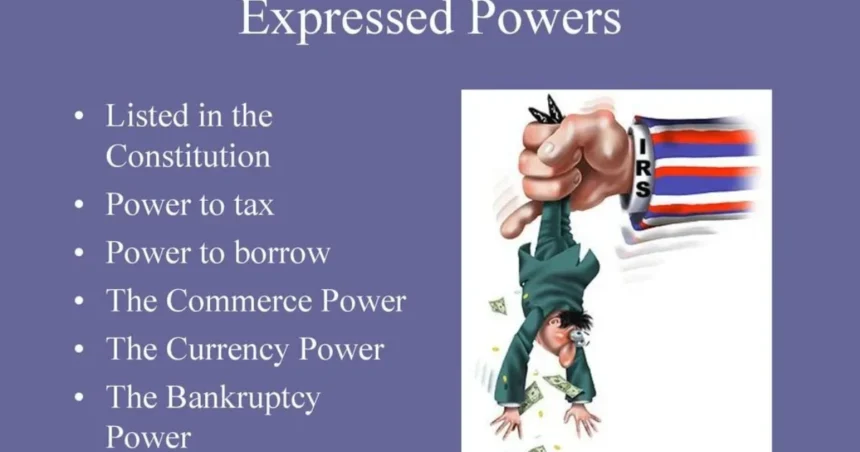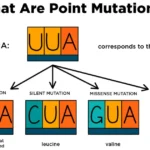Hey there! If you’ve ever wondered what exactly the U.S. Congress can do, you’re in the right place. The Constitution of the United States gives Congress specific powers, often called which of these is an expressed power of congress?(or enumerated powers), that are clearly listed in the document. These powers are the foundation of what Congress does, from making laws to handling the nation’s finances. In this article, we’ll break down what expressed powers are, why they matter, and which powers Congress has been given. We’ll also include a handy table to make things crystal clear. Whether you’re a student, a curious citizen, or just brushing up on civics, this guide is written in a friendly, human tone to make it easy to understand for all ages. Let’s dive in!
which of these is an expressed power of congress??
Before we get into the nitty-gritty, let’s clarify what expressed powers mean. In the U.S. Constitution, Article I, Section 8, spells out the specific powers granted to Congress. These are called “expressed” because they’re explicitly written in the Constitution—no guesswork needed! Think of them as Congress’s official job description. These powers allow Congress to do things like collect taxes, declare war, and regulate trade, among others.
Why does this matter? Well, the U.S. operates under a system of federalism, which means power is split between the federal government (like Congress) and the states. Expressed powers ensure Congress has the authority to handle big national issues, while other powers (called reserved powers) are left to the states. There are also implied powers, which aren’t written out but are assumed to help Congress carry out its expressed powers (we’ll touch on those briefly later).
For now, let’s focus on the expressed powers and explore what Congress is explicitly allowed to do.
Why Expressed Powers Are Important
Imagine the Constitution as a rulebook for how the U.S. government works. Without clear rules, things could get chaotic—states might try to do things only the federal government should handle, or Congress might overstep its bounds. Expressed powers keep things organized by giving Congress a defined role. They ensure the federal government can function effectively to serve the entire country, whether it’s defending the nation, managing the economy, or creating laws that apply to everyone.
For example, when Congress declares war or sets up a new tax, it’s using its expressed powers to make decisions that impact all Americans. These powers help maintain unity and order across the states, ensuring we have a strong national government when it’s needed.
The Expressed Powers of Congress: A Closer Look
Let’s break down the expressed powers of Congress as listed in Article I, Section 8 of the U.S. Constitution. There are 18 clauses in this section, each granting a specific power. To make this easy to follow, we’ll explain each one in plain language and then summarize them in a table at the end. Ready? Here we go!
1. Power to Tax and Spend
Congress has the power to collect taxes, duties, imposts, and excises to pay for the country’s needs, like funding the military, building roads, or supporting public services. This power also includes managing the federal budget and deciding how money is spent. For example, when Congress approves funding for schools or disaster relief, it’s using this power.
2. Power to Borrow Money
Congress can borrow money on the credit of the United States. This allows the government to take out loans to cover expenses when taxes aren’t enough, like during a war or economic crisis. Ever heard of the national debt? This power is where it comes from!
3. Power to Regulate Commerce
Congress can regulate commerce with foreign nations, among the states, and with Native American tribes. This means Congress controls trade policies, like setting tariffs on imported goods or making rules for businesses that operate across state lines. For instance, when Congress sets safety standards for cars sold nationwide, it’s using this power.
4. Power to Establish Naturalization and Bankruptcy Laws
Congress has the authority to create rules for naturalization (how people become U.S. citizens) and bankruptcy (how people or businesses handle debt they can’t pay). This ensures there’s a consistent process for immigrants becoming citizens and for dealing with financial failures across the country.
5. Power to Coin Money
Congress can coin money and regulate its value, which means it controls the creation of U.S. currency (like dollars and cents) and sets standards for what money is worth. It also has the power to punish counterfeiters who try to make fake money.
6. Power to Establish Weights and Measures
Congress sets standard weights and measures, ensuring that things like pounds, gallons, and miles are the same across the U.S. This makes trade and commerce fair and consistent.
7. Power to Establish Post Offices
Congress can establish post offices and post roads, which means it sets up the postal system and the roads used to deliver mail. This power helped create the U.S. Postal Service, which delivers your letters and packages.
8. Power to Grant Patents and Copyrights
Congress can promote science and the arts by giving inventors and creators exclusive rights to their work through patents (for inventions) and copyrights (for books, music, etc.). This encourages innovation by protecting people’s ideas.
9. Power to Create Federal Courts
Congress has the power to establish federal courts below the Supreme Court. This allows it to set up the federal court system, like district courts and appeals courts, to handle legal disputes under federal law.
10. Power to Punish Piracy
Congress can define and punish piracies and felonies on the high seas. This means it can make laws to deal with crimes like piracy or other serious offenses that happen on international waters.
11. Power to Declare War
Congress has the power to declare war, making it the only branch that can officially commit the U.S. to a war. For example, Congress declared war during World War II, but it hasn’t done so since (modern conflicts often use other authorizations).
12. Power to Raise and Support Armies
Congress can raise and support armies, meaning it can create and fund the military. However, the Constitution limits funding to two years at a time to keep the military under civilian control.
13. Power to Provide and Maintain a Navy
Similar to the army power, Congress can provide and maintain a navy to protect U.S. interests at sea. This includes funding ships, sailors, and naval operations.
14. Power to Make Rules for the Military
Congress can make rules for the government and regulation of the land and naval forces. This means it sets the laws for how the military operates, like the Uniform Code of Military Justice.
15. Power to Call the Militia
Congress can call forth the militia (like the National Guard) to enforce laws, suppress rebellions, or repel invasions. This power ensures the federal government can respond to emergencies.
16. Power to Organize the Militia
Congress can organize, arm, and discipline the militia while allowing states to appoint officers and train them. This creates a balance between federal and state control over groups like the National Guard.
17. Power to Govern the District of Columbia
Congress has exclusive authority over the District of Columbia, the area that’s now Washington, D.C. This means it can make laws for the nation’s capital without state interference.
18. Power to Make Necessary and Proper Laws
Finally, Congress has the power to make all laws necessary and proper for carrying out its other powers. This is often called the Elastic Clause because it stretches Congress’s authority to do what’s needed to get the job done. For example, creating a national bank wasn’t listed in the Constitution, but Congress used this clause to justify it.
Expressed Powers vs Implied Powers
You might hear about implied powers, which are different from expressed powers. Implied powers aren’t written in the Constitution but are assumed to be necessary to carry out the expressed powers. For example, Congress has the expressed power to regulate commerce, so it might create an agency like the Federal Trade Commission (FTC) to enforce those rules—that’s an implied power. The Elastic Clause (power #18) is what makes implied powers possible.
To keep things clear, this article focuses only on the expressed powers—the ones explicitly listed in the Constitution.
Table of which of these is an expressed power of congress?
Here’s a handy table summarizing all 18 expressed powers of Congress from Article I, Section 8. This table makes it easy to see what Congress can do at a glance.
| Clause Number | Expressed Power | Description |
|---|---|---|
| Clause 1 | Tax and Spend | Collect taxes, duties, and excises to pay for national needs and manage the federal budget. |
| Clause 2 | Borrow Money | Borrow money on behalf of the U.S. to cover expenses. |
| Clause 3 | Regulate Commerce | Regulate trade with foreign nations, states, and Native American tribes. |
| Clause 4 | Naturalization and Bankruptcy | Create rules for becoming a U.S. citizen and handling bankruptcy. |
| Clause 5 | Coin Money | Create and regulate the value of U.S. currency; punish counterfeiters. |
| Clause 6 | Weights and Measures | Set standard weights and measures for fair trade. |
| Clause 7 | Post Offices | Establish post offices and roads for mail delivery. |
| Clause 8 | Patents and Copyrights | Grant patents and copyrights to promote innovation. |
| Clause 9 | Federal Courts | Create federal courts below the Supreme Court. |
| Clause 10 | Punish Piracy | Define and punish crimes like piracy on international waters. |
| Clause 11 | Declare War | Officially declare war on behalf of the U.S. |
| Clause 12 | Raise Armies | Create and fund the U.S. Army, with funding limited to two years. |
| Clause 13 | Maintain Navy | Create and fund the U.S. Navy. |
| Clause 14 | Military Rules | Make rules for the operation of the army and navy. |
| Clause 15 | Call Militia | Call the militia to enforce laws, suppress rebellions, or repel invasions. |
| Clause 16 | Organize Militia | Organize, arm, and discipline the militia, with states appointing officers. |
| Clause 17 | Govern D.C. | Exercise exclusive authority over Washington, D.C. |
| Clause 18 | Necessary and Proper | Make laws needed to carry out the other expressed powers (Elastic Clause). |
Real-World Examples of Expressed Powers in Action
To make these powers feel more real, let’s look at a few examples of how Congress uses them:
- Taxing and Spending: Congress passes a federal budget every year, deciding how much money goes to things like healthcare, education, or defense. For instance, funding for Medicare comes from this power.
- Regulating Commerce: When Congress passed the Clean Air Act to regulate pollution from factories, it used its power to regulate commerce across states.
- Declaring War: Congress declared war on Japan after the attack on Pearl Harbor in 1941, officially entering World War II.
- Coining Money: The U.S. Mint, which makes our coins and paper money, operates under Congress’s authority to coin money.
- Establishing Post Offices: The U.S. Postal Service, which delivers mail to your doorstep, was created by Congress using this power.
These examples show how Congress’s expressed powers shape our daily lives, from the money in your wallet to the laws that keep the country running.
Common Questions About Expressed Powers
Let’s address a few questions you might have:
Are Expressed Powers the Only Powers Congress Has?
No, Congress also has implied powers (from the Elastic Clause) and some additional powers in other parts of the Constitution, like the power to impeach officials or approve treaties (in the Senate). But expressed powers are the core of what Congress can do.
Can States Do These Things Too?
Some powers, like taxing or regulating commerce within their borders, can also be exercised by states (these are called concurrent powers). But expressed powers like declaring war or coining money are exclusive to Congress—no state can do those!
Why Don’t We See Congress Declare War Anymore?
While Congress has the power to declare war, recent conflicts (like those in Iraq or Afghanistan) have often been authorized through resolutions rather than formal declarations. This is a topic of debate, as some argue Congress should use its war-declaring power more strictly.
Why This Matters to You
Understanding the expressed powers of Congress helps you see how the U.S. government works and why certain decisions are made. Whether it’s the taxes you pay, the roads you drive on, or the laws that protect your rights, Congress’s powers touch your life every day. Plus, knowing these powers can make you a more informed voter or citizen when you’re deciding who to support in elections.
For younger readers, think of Congress as the grown-up in charge of making big decisions for the country, like a parent setting rules for a household. The Constitution gives Congress a clear list of what it’s allowed to do, so everyone knows the rules.
Conclusion
which of these is an expressed power of congress? are the backbone of the federal government’s ability to function. From taxing and spending to declaring war and regulating commerce, these 18 powers listed in Article I, Section 8 of the Constitution give Congress the tools it needs to lead the nation. By understanding these powers, you can better appreciate how the U.S. government balances authority between the federal government and the states, and how it impacts your life.







